#Emissions
Every Single New Volvo Will Be Electrified After 2019
Volvo has been pushing “non-traditional” powertrains for a while. The company, encouraged heavily by its Chinese owner, has already begun moving toward limiting engine options in the very near future while focusing heavily on electrification. In 2014, the brand said all of its cars would be offered with a plug-in hybrid variant to supplement purely gas-powered models. Now it’s taking things further, setting a definitive timeline for the shift and stating that every new model after 2019 will be a hybrid or purely battery-driven vehicle.
“This announcement marks the end of the solely combustion engine-powered car,” Volvo CEO Håkan Samuelsson explained in an official statement on Wednesday. “Volvo Cars has stated that it plans to have sold a total of 1 million electrified cars by 2025. When we said it we meant it. This is how we are going to do it.”
When Will Fiat Chrysler Be Allowed to Sell 2017 EcoDiesel Jeeps and Rams? Possibly Not Until 2018 Models Roll Out
Ram and Jeep fans looking to get into a new 1500 or Grand Cherokee with the highest possible fuel economy picked the wrong year to embark on their search. While owners of 2014-2016 Ram and Grand Cherokee EcoDiesel models wonder whether their vehicles are polluting as the EPA claims, Fiat Chrysler Automobiles’ 2017 EcoDiesels languish in legal limbo.
At first, the Environmental Protection Agency held up the certification of 2017 models as it slogged through a backlog of extra-stringent testing prompted by Volkswagen’s diesel emissions scandal. Then, in January, FCA’s hopes of getting 2017 EcoDiesels to dealers hit a brick wall. The automaker was accused of violating environmental regulations after the EPA discovered unannounced emissions control devices on the models — raising concerns of a possible VW-type defeat device scheme.
Then came a lawsuit filed by the U.S. Department of Justice. So, when can diesel fans get their hands on a light-duty FCA oil burner? It could be a while.
Jeep and Ram EcoDiesels Are Plenty Dirty, West Virginia University Tests Show, But FCA's Having None of It
The university that sparked the emissions wildfire under Volkswagen has turned its testing equipment on Fiat Chrysler’s 3.0-liter EcoDiesel vehicles. The results aren’t pretty, especially for those with diminished lung capacity.
West Virginia University researchers who tested tailpipe emissions in real-world driving conditions claim the Ram 1500 and Jeep Grand Cherokee EcoDiesels, singled out by the Environmental Protection Agency in January for excess pollution and unauthorized emission control devices, are indeed quite harmful to air quality. The university plans to detail its findings in a report to be published within weeks.
FCA, which proved unable to sidestep the EPA’s wrath or a lawsuit from the U.S. Department of Justice, has spoken out against the university’s methods.
Volkswagen Apparently Needs More Nannies to Avoid Acting Up
It’s hard not to imagine Volkswagen as a tempestuous child, prone to mischief and currently on a “time out” after getting caught lobbing spitballs in class. The thought softens the reality of a massive corporate deception that polluted the air and led to tens of billions of dollars in penalties.
As it turns out, serving as Volkswagen’s nanny is exhaustive work. After the U.S. government ordered a monitor to keep an eye on the automaker as part of its wildly expensive settlement, the monitor feels the need to triple his staff.
Even Automakers Disagree With Trump's Choice to Abandon the Paris Accord
On Thursday, President Trump made the decision to ditch the Paris climate accord and the entire internet seemingly spent the next twelve hours calling it a misstep. Either the president possesses a hidden wisdom on the subject that nobody else can seem to fathom, or he has severely misjudged the public’s position on environmental issues. Calling the accord “unfair at the highest level to the United States,” Trump suggested the deal was detrimental to the country’s manufacturing efforts and gave other nations a financial advantage.
However, the instant feedback from the automotive industry did not appear to share his viewpoint. With nearly 200 other countries still adhering to the nonbinding Paris agreement, it’s almost as if Trump had forgotten car companies operate on a global stage. Both General Motors and Ford Motor Company issued statements in opposition to Trump’s decision.
“We believe climate change is real, and remain deeply committed to reducing greenhouse gas emissions in our vehicles and our facilities,” announced Ford. “Our commitment to sustainability is why we’re investing so heavily in electrification and adding 13 new electrified vehicles to our lineup.”
President Trump Planning to Abandon Paris Climate Accord: Reports
President Donald Trump has said he’ll be providing his thoughts on the Paris climate deal in the coming days, but media outlets are already suggesting his take on the issue will be to leave it. Sources are claiming the president’s mind is made up and, to the surprise of no one, odds are good he will withdraw the U.S. from the deal.
Trump has already made it his mission to overturn as many Obama-related policies as possible and seems unconcerned with environmental issues that might stand in the way of potential manufacturing opportunities. Since taking office, Trump has been pushing regulators to rethink the United States’ auto emission guidelines, undoing one of the previous administration’s final acts in office.
Pulling out of the Paris accord would fulfill a campaign promise and negate the need for the U.S. to adhere to rigid emission standards — at the expense of further alienating the president from Europe’s leadership.
Justice Department Sues Fiat Chrysler Over Diesel 'Defeat Devices'
The U.S. Department of Justice has filed a civil lawsuit against Fiat Chrysler Automobiles, alleging the automaker violated the Clean Air Act.
At the root of the lawsuit is roughly 104,000 Ram 1500 and Jeep Grand Cherokee vehicles equipped with the 3.0-liter diesel V6, sold between 2014 and 2016. Earlier this year, the Environmental Protection Agency accused FCA of failing to disclose eight auxiliary emissions control devices during the certification process. The vehicle’s software allows for higher-than-permitted emissions at certain times.
Despite FCA’s protests — as well as attempts to head off a potential multi-billion-dollar fine — the parallels between this case and Volkswagen’s emissions saga are growing by the day.
EPA to Approve Diesel Repair for an Additional 84,000 Volkswagens: Report
The Environmental Protection Agency and California Air Resources Board will soon announce an approved fix for roughly 84,000 recalled Volkswagen diesels. As part of VW’s buyback program of cars equipped with emissions-cheating defeat devices, the soon-to-be-certified modification allows 2012-2014 Passat TDIs to operate within acceptable pollution guidelines.
Volkswagen has already designed fixes for the Generation 3 diesel 2.0-liter engines, providing vehicle owners the choice to keep and repair their car, or to have it bought back. Similar fixes in Europe have yielded complaints of reduced fuel economy, starting difficulties, trimmed power, weak acceleration, and even abnormal sounds. As usual, if you want to hold onto your TDI, you may be doing so at your own risk.
Let's Try This Again: Fiat Chrysler Attempts to Certify 2017 Diesel Rams and Jeeps, Avoid Fines
After being forbidden from selling 2017 Ram 1500 and Jeep Grand Cherokee models equipped with the 3.0-liter diesel V6, Fiat Chrysler Automobiles is hoping for a little love from the Environmental Protection Agency.
The EPA suspended the certification process in January after discovering eight undeclared auxiliary emissions control devices on the EcoDiesel models. The existence of the software, installed in those vehicles since the 2014 model year, earned FCA a notice of violation of the Clean Air Act. Since then, the automaker has attempted to work with environmental regulators to smooth over the controversy, even as its mailbox filled with subpoenas from federal and state authorities.
Yesterday, we learned the Justice Department was readying a lawsuit against FCA. With the potential for billions of dollars in fines staring it in the face, FCA has whipped up a new application in the hopes of placating the EPA and selling some light-duty diesels.
Study Suggests Diesel Cars Killed 38,000 Extra People Without Even Hitting Them
Earlier today, we mentioned Volvo was preparing to dump its diesel-burning engines because the EU is aggressively pursuing anti-diesel legislation. While it’s easy to accuse Europe of being fraught with fringe environmentalists, the truth is that the continent spent decades avoiding restrictions on diesel-burning passenger vehicles, sold loads of them, and has suddenly found itself with its green pants around its ankles.
In addition to hazy skies, air pollution isn’t exactly great for your health. A recent study published in Nature found diesel engines produced 5 million more tons of nitrogen oxide than previously estimated for 2015. The research focused on vehicles in Australia, Brazil, Canada, China, the European Union, India, Japan, Mexico, Russia, South Korea and the United States and uncovered that we’ve grossly overestimated the amount of good being done by our global regulatory efforts. Companies are practically guaranteed to be falsifying testing results while others are openly incapable of reaching government-enforced guidelines.
Who cares? It’s not like anyone is dying, right? Well, not exactly.
Volvo Won't Pursue Diesel Development Any Further Than It Already Has
Volvo Cars is prepared to lower the curtain on diesel engines. Rising standards for nitrogen oxide emissions — and the cost associated with reducing them — has guided the automaker away from oil burners and into the loving arms of gasoline. “From today’s perspective, we will not develop any more new generation diesel engines,” CEO Hakan Samuelsson told Germany’s Frankfurter Allgemeine Zeitung.
That is not to suggest Volvo won’t get some serious mileage out of its last batch of diesels, though. The automaker has no plans to abandon the motors outright, suggesting it could march onward with its current lineup for at least a few more years. Diesels would also help Volvo meet corporate fuel economy targets while it gets new super-economical electric powerplants ready for market.
No Mercedes-Benz Diesels for 2017, or Maybe Ever
Fans of German compression-ignition engines had best dig out those old, glossy posters of an olive green 300D, as they’re going to need it.
Daimler announced it will not sell 2017 diesel Mercedes-Benz models in the U.S. as rumors swirl that the automaker might give up on the segment altogether.
The problem lies in regulatory approval, which Daimler has struggled — and failed — to obtain. Following the Volkswagen diesel scandal, the Environmental Protection Agency and California Air Resources Board began going over diesel emissions with a fine-toothed comb. The four diesels Mercedes-Benz had hoped to sell in the U.S. this year became trapped in a bottleneck last fall.
After killing off the C300d’s prospects for good, the automaker then sought approval for just one model — the GLS350d. No dice. Investigations on both sides of the Atlantic could now cap the company’s 57-year diesel history in the U.S.
Colorado is Smoking Out Coal Rollers; Practice to Be Made Illegal
Rolling coal is one of the more contentious forms of automotive customization, primarily because it’s as much associated with vindictive cruelty as it is with having a good time.
In fact, there are probably more videos on YouTube of modified diesel truck owners blasting cyclists, protesters, activists, and EV drivers with sooty smoke than there are not. Over the last few years, rolling coal has become a way for many to showcase their anti-environmentalist and hard-right viewpoints. However, regardless of your politics, being on the receiving end of a diesel truck intentionally running ultra-rich is obnoxious and several states have attempted to ban the practice.
After three failed attempts, Colorado finally managed to pull it off. While earlier attempts fizzled, mainly due to concerns expressed by the Republican-controlled Senate over how regulations might affect the trucking and agriculture industries, a revised bill better addressed those concerns. Now, law enforcement will undergo training to help differentiate between a smoky work truck and those specifically designed to run rich for the purpose of rolling.
VW Fined Billions of Dollars for What Looks Like the Last Time
Oh my God, it’s finally almost over. After a 10-year conspiracy and almost 600,000 rigged diesel cars, VW’s legal battle with the United States is coming to an end. Volkswagen pled guilty last month to conspiracy to commit fraud and the obstruction of justice after it was caught cheating on emissions tests in 2015, and we’ve been eagerly waiting the verdict and subsequent punishment.
Today, a U.S. judge ordered the automaker to observe three years of probation and shell out a $2.8 billion criminal fine. The sum, which Steph Willems has informed me equates to 135,168 VW Golfs — after delivery and rounding up to the closest car — is in addition to the company’s $1.5 billion in civil penalties, $4.7 billion in mandatory anti-pollution initiatives, and $11.2 billion diesel buyback program.
White House Plan Virtually Eliminates Funding for EPA Emissions Testing
The Trump administration’s current plan for the Environmental Protection Agency budget removes nearly all funding for vehicle emissions testing. Proposed cuts to the EPA’s budget would eliminate 99 percent of the agency’s $48 million in funding for vehicle testing, shouldering automakers with increased fees to split the difference.
However, former head of the EPA’s Office of Transportation and Air Quality Margo Oge is claiming that such a large cut would force the agency into “pretty much shutting down the testing lab” regardless of corporate contributions.




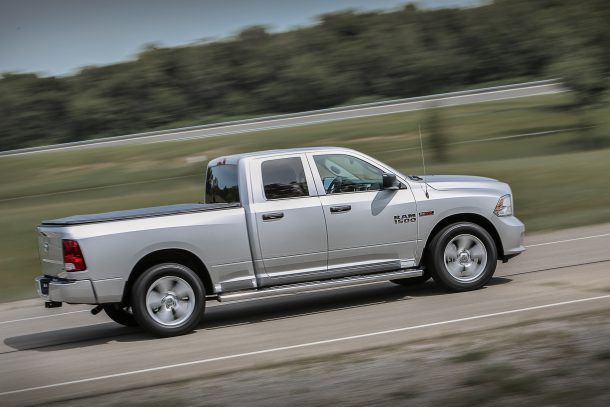
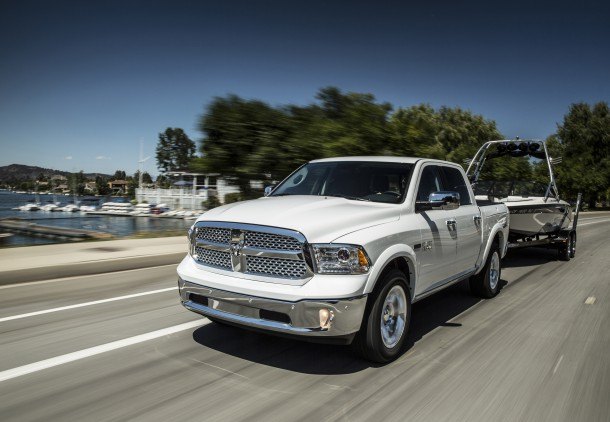


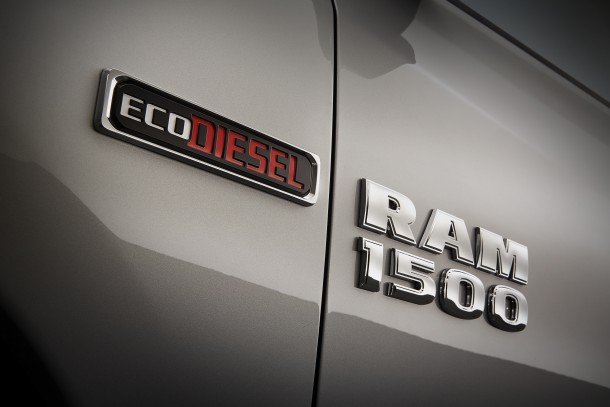
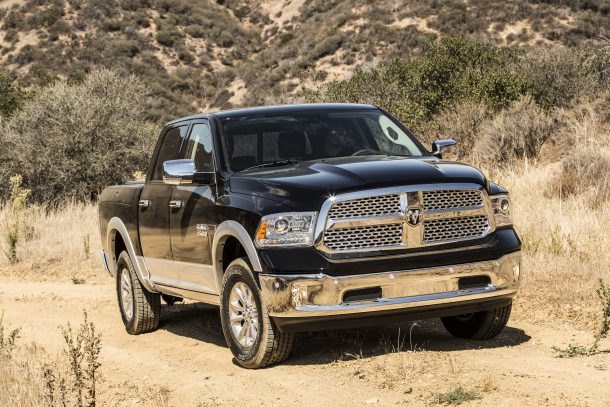

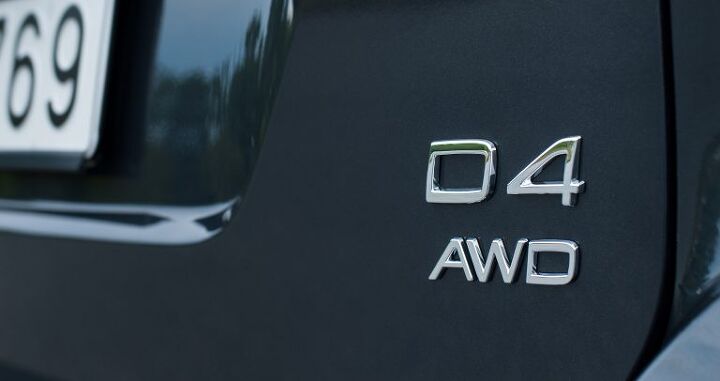
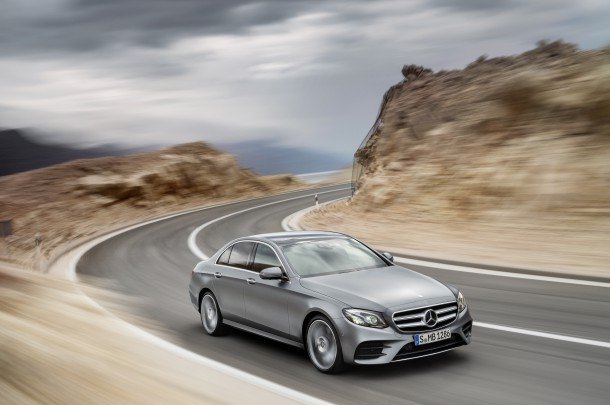
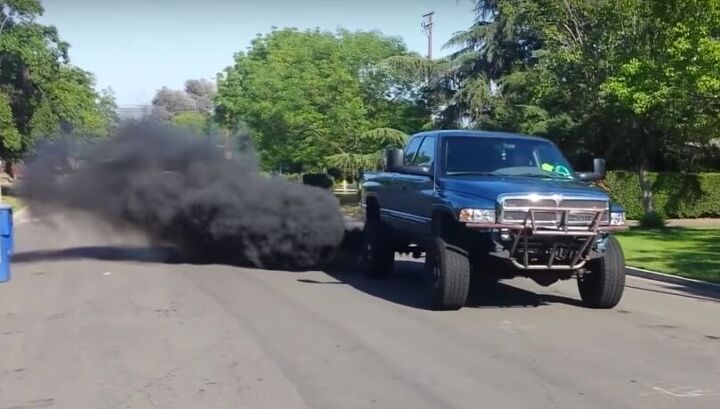













Recent Comments